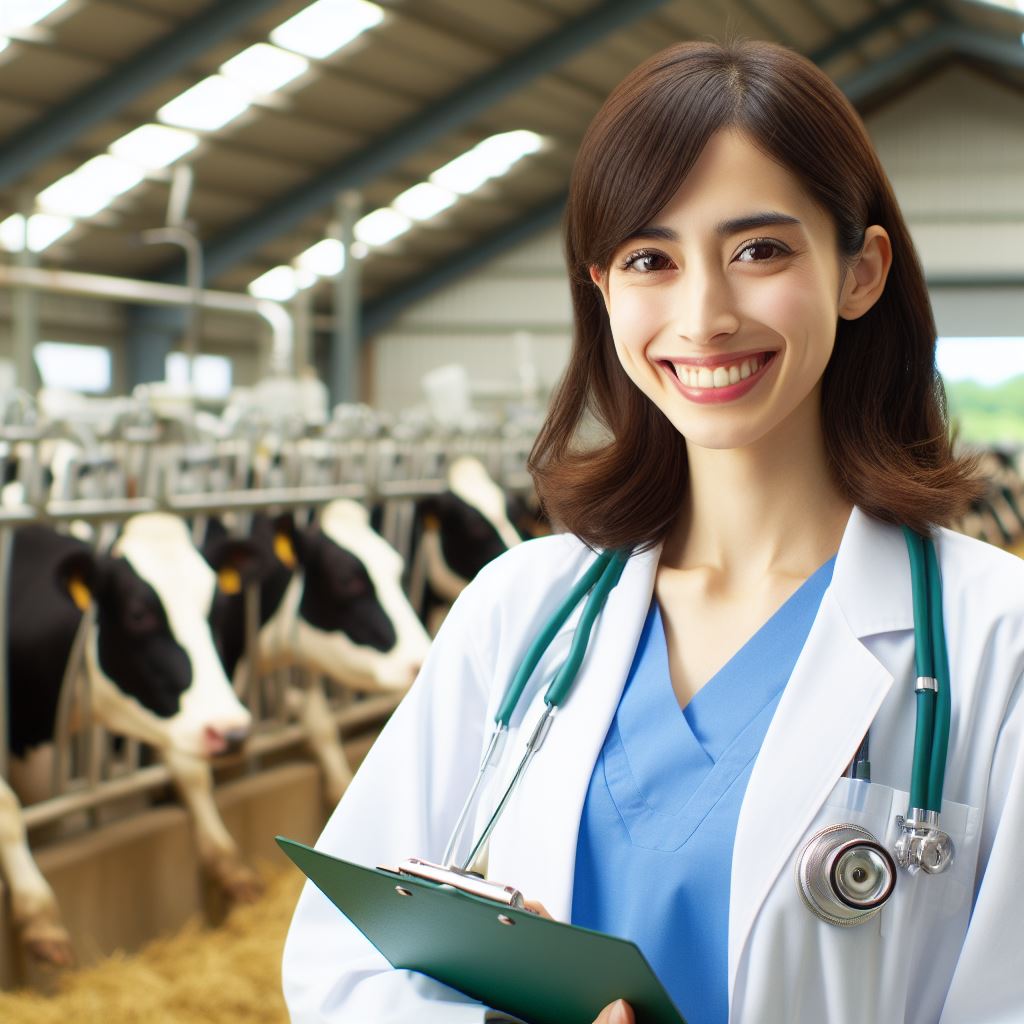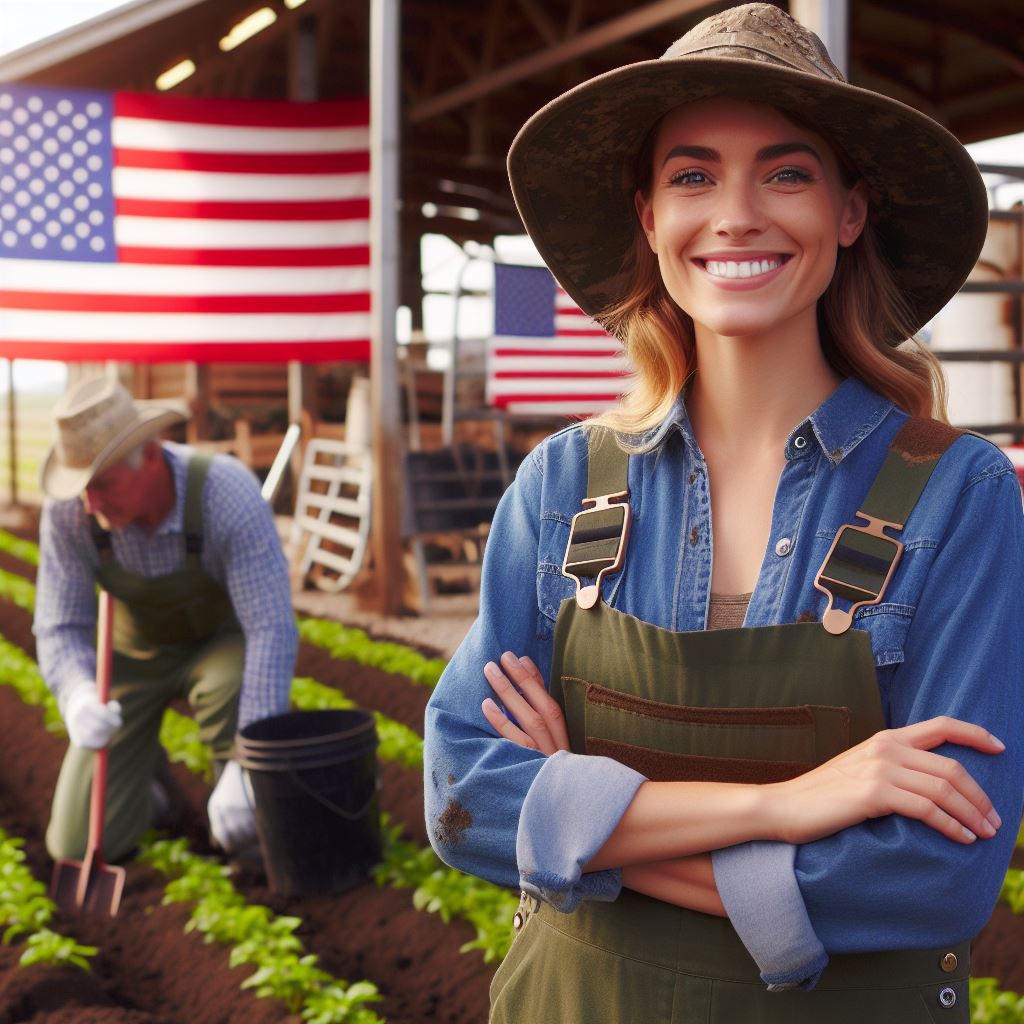Introduction
Silicon valley techies turn vineyards farmers, traditionally hailed as the epicenter of technological innovation, with its towering skyscrapers and bustling tech companies..
However, amidst all the cutting-edge advancements, there is a surprising trend emerging – tech professionals are trading in their keyboards for plows and becoming farmers.
Explanation of Silicon Valley’s reputation as a hub of technological innovation
Silicon Valley, located in the southern part of the San Francisco Bay Area, is renowned for its concentration of high-tech companies and startups.
It has cultivated a reputation as a hotbed of innovation, attracting genius minds from all over the world.
The region is home to companies like Google, Apple, and Facebook, leading the charge in revolutionizing technology.
Growing trend of tech professionals turning to farming
In recent years, however, there has been a shift in Silicon Valley.
Many tech professionals, weary of the fast-paced and high-stress environment, are reevaluating their priorities and seeking a more grounded lifestyle.
They are leaving behind their comfortable, air-conditioned offices to embark on a new adventure – farming.
These former techies are investing their time, skills, and resources into sustainable agriculture, finding solace in the earth’s fertility and the rewarding journey of growing crops.
They are passionate about reconnecting with nature and embracing the slow-paced rhythm of farm life.
Whether it be growing organic vegetables, raising livestock, or even diving into viticulture, these tech-turned-farmers are forging a new path.
They are using their knowledge of technology to optimize farming practices, employing drones for crop monitoring, utilizing data analytics for improved yields, and developing smart irrigation systems to conserve water.
As the line between technology and agriculture blurs, Silicon Valley is witnessing a unique convergence of the two seemingly disparate worlds.
The trend of tech professionals becoming farmers is a testament to the human desire for balance and harmony with nature.
Through their innovative approach, they are redefining the meaning of success and finding fulfillment in cultivating the land.
Silicon Valley’s influence on agriculture
Silicon Valley’s influence on agriculture has been significant, as the technology revolution has impacted various industries forever.
The potential impact of technology in agriculture is also quite remarkable.
- Sensors, GPS, and drones optimize crop production through precision farming.
- Automation and robotics enhance efficiency, reducing labor costs and errors.
- Real-time data empowers farmers to make informed decisions about irrigation, fertilization, and crop rotation.
- Smart farming promotes sustainable practices, reducing water consumption and chemical usage.
- Satellite imagery and machine learning detect crop diseases early, reducing crop loss.
- Blockchain ensures supply chain transparency, enhancing food safety and quality.
- Vertical farming and hydroponics make fresh produce accessible in urban areas, reducing transportation costs.
- Agtech startups in Silicon Valley innovate solutions to agricultural challenges.
- Farm management software provides comprehensive operation views, enabling efficient planning and resource allocation.
- Autonomous robots perform tasks like weeding and harvesting, reducing reliance on manual labor.
- Climate prediction models and weather data aid farmers in adapting to changing conditions.
- IoT devices monitor livestock health, reducing disease outbreaks and optimizing breeding.
- Direct farmer-consumer connections ensure fair prices, bypassing traditional distribution channels.
- Online platforms and mobile apps provide farmers with expert knowledge and training.
- Big data analytics analyze market trends and optimize supply chains for agribusinesses.
- Genetic engineering develops disease-resistant and high-yield crop varieties.
- IoT devices optimize water usage, conserve resources, and detect leaks.
- Technology improves inventory management, reducing food waste throughout the supply chain.
- Automated systems monitor animal behavior and nutrition, ensuring high-quality produce and reducing wastage.
In short, Silicon Valley’s influence on agriculture is undeniable.
Technology has revolutionized the industry by improving efficiency, sustainability, and productivity.
The potential impact of technology in agriculture is vast, promising a future where farming becomes more sustainable, efficient, and resilient to challenges.
Read: Cattle Trails: A Rancher Life and Work
Reasons behind tech professionals turning to farming
Many tech professionals are leaving the fast-paced industry to embark on a different path – farming.
Here are the reasons why:
Desire for a more sustainable and fulfilling lifestyle
Leaving the hustle and bustle of Silicon Valley behind, tech professionals are increasingly trading in their keyboards and computer screens for pitchforks and plows.
The allure of farming, with its promise of a more sustainable and fulfilling lifestyle, has captivated the hearts and minds of these individuals.
One of the reasons behind this shift is the growing desire for a more sustainable way of living.
Techies who have spent years developing the latest technology and software now crave a closer connection to nature.
They long to work with their hands, to till the earth, and to nurture life rather than pixels.
Increasing interest in organic farming and healthier food options
Moreover, there is a rising interest in organic farming and healthier food options.
As we become more aware of the detrimental effects of processed foods and pesticides, many tech professionals are taking matters into their own hands.
By becoming farmers, they can ensure that the produce they grow is free from harmful chemicals and can provide their families and communities with wholesome, nutrient-rich food.
A need for a break from the fast-paced tech industry
In addition, farming offers an escape from the fast-paced tech industry.
The relentless pressure and long hours of coding and meetings can take a toll on one’s well-being.
By transitioning to farming, tech professionals can find solace in the simplicity and tranquility of rural life.
They can embrace the slower rhythm of nature, allowing themselves the time to recharge and reconnect with what truly matters.
But what about the challenges of starting a farm? Tech professionals are masters of problem-solving, and they approach farming with the same level of determination and resourcefulness.
They leverage their technological expertise to optimize farming practices, utilizing automation, data analysis, and precision farming techniques to maximize efficiency and productivity.
Transform Your Agribusiness
Unlock your farm's potential with expert advice tailored to your needs. Get actionable steps that drive real results.
Get StartedMany techies are also drawn to the idea of community building that farming brings.
Farm-to-table initiatives and farmers markets have seen a resurgence in recent years, and tech professionals are at the forefront of this movement.
They use their networking skills and business acumen to create sustainable and profitable farming communities that can meet the demands of their local markets.
While the transition from tech to farming may seem like a radical change, it is a testament to the diversity of skills and interests that tech professionals possess.
By following their passion for sustainable living, healthy food, and a slower pace of life, these techies-turned-farmers are rewriting their own stories and creating a more vibrant and connected future.
In fact tech professionals are turning to farming for various reasons.
Desire for sustainable living, interest in organic farming, healthier food, and tech fatigue contribute to this lifestyle shift.
As these individuals embark on this new journey, they bring their problem-solving abilities and community-building skills to create a more sustainable and thriving agricultural sector.
Read: From Seeds to Success: An Organic Farmer
Challenges Faced by Techies Turned Farmers
Lack of Traditional Agricultural Knowledge and Experience
- Many techies who turn to farming lack the traditional knowledge and experience required.
- Their background in technology often does not equip them with the necessary skills for farming.
- They may struggle with understanding soil composition, crop rotation, and pest management.
- Techies may be unfamiliar with the challenges of weather patterns, irrigation, and harvesting techniques.
- Without this foundational knowledge, they face challenges in effectively running a farm.
Overcoming the Learning Curve and Acquiring Necessary Skills
- Techies transitioning to farming must undergo a steep learning curve to acquire agricultural skills.
- They may take up formal education or engage in hands-on training programs to bridge their knowledge gap.
- Joining agricultural communities and networks helps techies learn from experienced farmers and gain practical insights.
- Online resources, courses, and forums provide valuable information for techies turned farmers.
- Continuous learning and adapting to new techniques and technologies are integral to their success.
Adjusting to the Physical Demands of Farming
- The physical demands of farming can come as a shock to techies accustomed to desk jobs.
- Long hours of manual labor, bending, lifting, and working in varying weather conditions are challenges they face.
- They must build physical endurance and strength to be able to tackle the demanding tasks on the farm.
- Techies may need time to adjust and learn techniques to avoid fatigue and physical strain.
- Gradually, they develop a rhythm and adapt to the physical demands, finding a balance between mental and physical work.
In essence, techies-turned-farmers encounter several challenges as they embark on a new path.
Their lack of traditional agricultural knowledge and experience necessitates a steep learning curve.
Acquiring the necessary skills and knowledge through education, training programs, and networking with experienced farmers is crucial.
Additionally, adjusting to the physical demands of farming can be strenuous, requiring techies to build physical endurance and find a balance between physical and mental work.
However, with determination, continuous learning, and perseverance, techies can overcome these challenges and successfully transition from Silicon Valley to vineyards.
Read: Grape Expectations: A Vintner Journey

Successful stories of techies-turned-farmers
From Silicon Valley to Vineyards: The Techies Who Found Serenity in Farming
- Meet John, a former software engineer who decided to leave his high-paying job in Silicon Valley and pursue a different kind of success – farming. With no prior experience in agriculture, John embarked on a journey that would not only transform his own life but also impact his community.
- Mark, another techie-turned-farmer, found himself burnt out from the long hours and high-pressure environment of the tech industry. Seeking a sense of purpose and connection with nature, he decided to trade his laptop for a plow and start his own organic farm.
- Sarah, a former programmer, discovered her passion for sustainable farming after attending a permaculture workshop. Inspired by the possibility of creating a self-sufficient ecosystem, she quit her tech job and founded her own regenerative farm, focusing on soil health and biodiversity.
Profiles of individuals who transitioned from tech to farming
1. John: Bringing Innovation to Traditional Farming
John’s background in technology helped him bring innovation to traditional agricultural practices.
He implemented automation systems in his vineyard, optimizing water usage and streamlining harvesting processes.
2. Mark: Cultivating Community through Farming
As a techie, Mark was used to collaborating with colleagues around the world.
He applied this experience to farming by organizing community events, such as farm-to-table dinners, to create a connection between consumers and the source of their food.
3. Sarah: Pioneering Sustainable Farming Methods
With her tech expertise, Sarah developed a smartphone app that tracks soil health and provides personalized recommendations for farmers.
She also shares her knowledge through workshops and online courses, inspiring others to adopt sustainable farming practices.
Highlighting their achievements and unique approaches to farming
1. John: From Silicon Valley to Award-Winning Wines
John’s dedication to excellence led him to produce award-winning wines from his vineyard.
His approach blends traditional winemaking techniques with data-driven analysis, resulting in exceptional quality and flavor.
2. Mark: Nurturing a Sense of Community and Regeneration
Mark’s organic farm serves as a hub for the local community.
He hosts workshops on permaculture and regenerative farming, empowering others to grow their own food sustainably while fostering a sense of belonging.
3. Sarah: Empowering Farmers with Technology
Sarah’s app revolutionizes the way farmers approach soil health and crop management.
By empowering fellow farmers with data-driven insights, she is helping to build a more resilient and environmentally friendly agriculture industry.
Positive impact they have made on their communities
- John’s vineyard has become a sought-after destination for visitors, boosting tourism in the region and supporting local businesses.
- Mark’s organic farm provides fresh, nutritious produce to the community, promoting healthier eating habits and reducing food miles.
- Sarah’s workshops and online courses have inspired a new generation of sustainable farmers, leading to a stronger local food system and increased awareness of environmental issues.
In general, these techies-turned-farmers have successfully transitioned from the fast-paced world of technology to the nurturing embrace of agriculture.
Through their innovative approaches and dedication to sustainability, they have not only found personal fulfillment but also made a positive impact on their communities.
Their stories serve as an inspiration for others considering a similar path, showing that a career change can lead to a more fulfilling and meaningful life.
Read: Harvest Tales: Life in the Wheat Fields
Benefits of Tech Expertise in Farming
Farming, traditionally considered a labor-intensive industry, is now witnessing a wave of technological advancements powered by the expertise of tech professionals.
These experts, often referred to as techies, bring innovation and efficiency to traditional farming practices, resulting in improved crop yields and sustainable farming methods.
Innovation and Efficiency
Techies, with their deep knowledge of cutting-edge technology, introduce innovative solutions to age-old farming practices.
They leverage their expertise to analyze and optimize various aspects of farming, such as crop selection, irrigation methods, and pest control.
Using data analytics, tech professionals analyze vast amounts of data, including weather patterns, soil quality, and crop performance records.
This helps them make informed decisions regarding the best crops to plant, the most suitable planting times, and appropriate fertilization schedules.
The introduction of precision agriculture allows farmers to monitor and manage their crops with utmost precision.
Techies utilize remote sensing technologies to gather data on plant health, growth rates, and nutrient deficiencies.
This enables farmers to tailor their irrigation, fertilization, and pesticide application, minimizing waste and maximizing crop health.
Improved Crop Yields
The integration of data analytics and precision agriculture has proven instrumental in boosting crop yields.
By closely monitoring factors such as moisture levels, temperature, and nutrient content, farmers can provide their crops with optimal conditions for growth.
Tech experts develop sophisticated algorithms and models that accurately predict crop performance based on historical data and current environmental conditions.
This allows farmers to optimize their cultivation practices, resulting in higher crop yields.
They can identify potential issues, such as disease outbreaks or pest infestations, at an early stage and take the necessary preventive measures.
Moreover, techies implement drone technology to conduct aerial surveys of farmland, capturing detailed imagery and generating topographic maps.
This aids in identifying variations in soil fertility, enabling farmers to implement site-specific nutrient management strategies.
Automation and Robotics
The integration of automation and robotics in farming processes has further revolutionized the agricultural industry.
Techies have developed autonomous machines capable of performing tasks such as seeding, irrigation, and harvesting.
Robotic devices equipped with advanced sensors and computer vision systems can precisely plant seeds at optimal depths, ensuring uniform plant distribution.
These machines reduce the physical strain on farmers and significantly speed up the planting process.
Furthermore, automated irrigation systems controlled by sensors and advanced algorithms provide just the right amount of water required by crops.
This eliminates water wastage and minimizes the risk of over or under irrigation.
Showcase Your Farming Business
Publish your professional farming services profile on our blog for a one-time fee of $200 and reach a dedicated audience of farmers and agribusiness owners.
Publish Your ProfileThe infusion of tech expertise in farming brings a plethora of benefits.
By leveraging innovations, efficiency gains, data analytics, and automation, techies optimize crop performance, boost yields, and revolutionize traditional farming practices.
The collaboration between tech professionals and farmers paves the way for sustainable farming methods that promote environmental stewardship, conserve resources, and meet the growing demands of our global population.
With continued support and investment, techies turned farmers can cultivate a future where technology and agriculture coexist harmoniously to feed the world.
The Role of Silicon Valley in Supporting Techies-Turned-Farmers
Silicon Valley, renowned for its innovation and technological advancements, is now witnessing a unique trend of techies-turned-farmers.
These individuals, armed with their expertise and passion for sustainability, are redefining the agricultural industry.
Let’s delve into the various aspects of this phenomenon:
The Emergence of Agritech Startups and Their Contributions to the Agricultural Industry
- Agritech startups, fueled by the entrepreneurial spirit, have swiftly emerged in Silicon Valley.
- These startups leverage technology to address existing challenges in the agricultural sector.
- Through advanced analytics and automation, they are revolutionizing farming practices.
- From precision farming to vertical agriculture, their contributions increase productivity and optimize resource usage.
- By developing innovative crop management systems, they reduce waste and enhance sustainability.
- These tech-driven solutions empower both traditional and novice farmers to thrive in the industry.
Tech Giants Investing in Agriculture and Promoting Sustainability
- Recognizing the potential in agriculture, tech giants are increasingly investing in the sector.
- Companies like Google, Microsoft, and Amazon have dedicated resources to support agritech startups.
- They provide financial backing, mentorship, and access to their extensive networks.
- These collaborations foster innovation and accelerate the development of technological solutions.
- Moreover, these tech giants actively promote sustainability and eco-friendly practices in agriculture.
- Through renewable energy initiatives and efficient resource management, they drive positive change.
Collaboration Between Silicon Valley and the Farming Community
- A notable aspect of the techies-turned-farmers movement is the collaboration between Silicon Valley and the farming community.
- By bridging the gap between these two diverse realms, mutual benefits are achieved.
- Farmers gain access to cutting-edge technologies, enabling them to optimize their operations and increase profitability.
- Meanwhile, techies-turned-farmers acquire invaluable knowledge from seasoned agricultural experts.
- Together, they exchange ideas, best practices, and develop sustainable farming models.
- Furthermore, this collaboration ensures the preservation of traditional farming practices while integrating modern innovation.
In review, Silicon Valley’s role in supporting techies-turned-farmers is instrumental in driving innovation and sustainability in the agricultural industry.
The emergence of agritech startups has introduced transformative technologies that enhance productivity, resource optimization, and waste reduction.
Tech giants’ investment in agriculture and focus on sustainability further catalyze these advancements.
Moreover, the collaboration between Silicon Valley and the farming community fosters knowledge exchange, resulting in sustainable farming practices that preserve tradition while embracing innovation.
The convergence of technology and agriculture holds immense potential for sustainable farming and reinforces the crucial interdependence between Silicon Valley and the farming sector.
Conclusion
The influence of Silicon Valley on farming has been significant and transformative.
By bringing their technological expertise to the agricultural industry, tech professionals have revolutionized the way food is grown and harvested.
To recap, we have seen how Silicon Valley has introduced innovative solutions for various farming challenges, including precision agriculture, automation, and data analytics.
These advancements have not only increased efficiency and productivity but also reduced the environmental impact of farming.
This blog section serves as an encouragement for more tech professionals to consider a career in agriculture.
With their skills and knowledge, they have the potential to make a lasting impact on the food industry and contribute to addressing global food security challenges.
Furthermore, the future of farming lies in technology.
As the world’s population continues to grow, the demand for food will increase.
By leveraging technology, we have the opportunity to ensure sustainable farming practices, improve crop yields, and mitigate food waste.
The potential for technology to shape the future of farming is immense.
From artificial intelligence-driven farming systems to vertical farming and hydroponics, there are endless opportunities for innovation and improvement.
By combining the groundbreaking work of Silicon Valley with the deep-rooted knowledge and wisdom of farmers, we can create a truly sustainable and efficient agricultural sector.
Overall, techies turning into farmers is not just a trend but a necessity for the future of food production.
Let us embrace the potential of technology in shaping the future of farming and work together towards a more sustainable and resilient agricultural industry.




